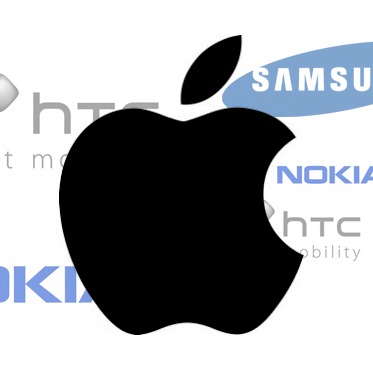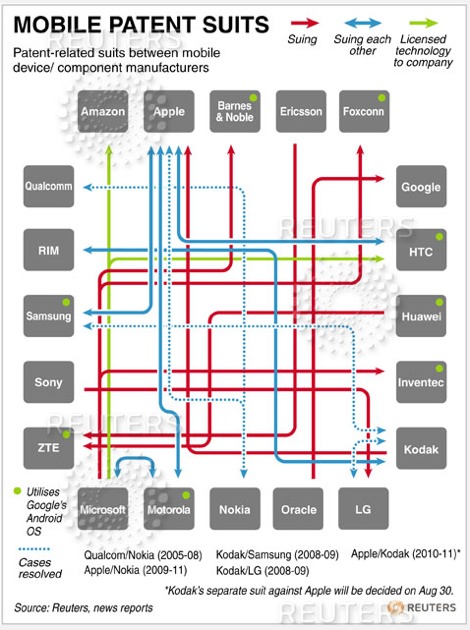In today’s competitive world, lawsuits over patents are often resorted to; in order for a company to maintain an edge against others. The world of lawsuits can be complicated, but thankfully there’s this infographic which shows exactly which companies are suing, being sued, or both.

As you can tell from the chart below, Apple is essentially the most popular kid in the block, being sued by HTC, Motorola and Samsung, while at the same time suing them back. The most civil is perhaps Microsoft, which is being sued, and at the same time suing Motorola, yet it licenses its technology to both Amazon and HTC. These license agreements allow other companies to use Microsoft’s patents for a fee, which is of course a welcome treat.

Confused? Don’t be: the lawsuits themselves are confusing too, especially when they take place over an extended period of time . Yet, if this confuses you, imagine how those trying to innovate in this space may feel when looking at their high chances of being sued by violating a 10-year-old patent they might not even know about. With the patent system set up the way it is, tech startups might have quite a hard time shipping a product without spending a considerable amount of money (they might not have) paying for license agreements and responding to lawsuits.
It’s a common practice to move ahead with lawsuits when other methods to immobilize competitors are scarce, even when patent owners haven’t been harmed in a measurable way by those who have used them. Yet, a well-applied lawsuit can essentially decimate a competitor and create a monopoly, even though the business world should arguably stand for fair competition.
In order to address this problem, many believe that the American patent system, which used by most companies, even European and Asian ones, is followed. There’s some discussion over how a reform should be made in other to make sure ideas are protected but also ensure they don’t hinder innovation by making it discouraging for new competitors to appear. Yet, there hasn’t been much progress in improving the system itself, therefore the status quo will likely remain for quite some time. Yet, change is inevitable: if the American patent system doesn’t work, companies might start looking into other options.
(via ReadWriteWeb)
You can follow us on Twitter or join our Facebook fanpage to keep yourself updated on all the latest from Microsoft, Google and Apple.

